
Table of Contents
- Introduction
- What Is Organic Farming?
- Why Organic Farming Is Gaining Ground in Nigeria
- Challenges Facing Organic Farming in Nigeria
- The Future of Organic Farming: Trend or Fad?
- How HTSF Global Supports Sustainable Farming
- Conclusion
- References
Introduction
In recent years, Nigeria has witnessed a rising interest in organic farming, an agricultural practice rooted in sustainability, natural inputs, and environmental responsibility. Across various regions, from the lush lands of the Middle Belt to bustling urban centers like Lagos and Abuja, farmers, agribusinesses, and consumers alike are starting to see the value of producing food in ways that nurture both people and the planet.
But is this shift a meaningful transformation or just another short-lived agricultural buzzword?
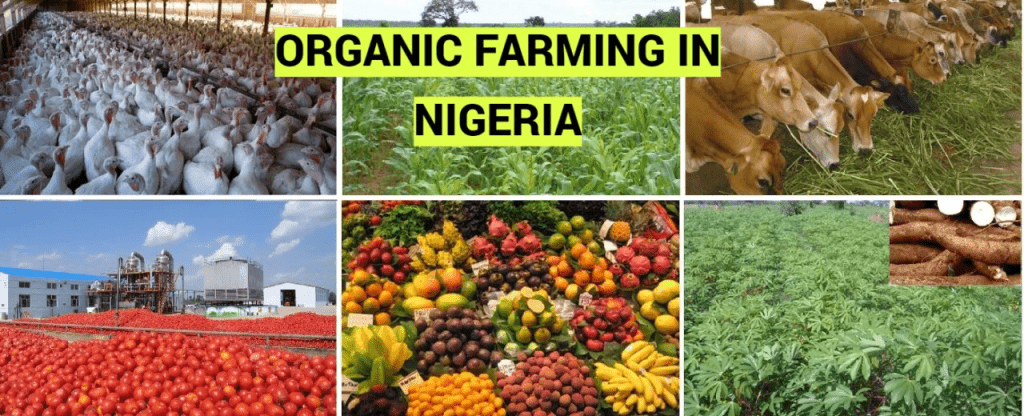
As global conversations around climate change, food security, and sustainable living become louder, organic farming is becoming increasingly relevant in Nigeria. But with challenges like poor infrastructure, limited education on organic methods, and the perception that organic food is “elitist” or “for the wealthy,” there’s still a long road ahead. In this blog, we dive deep into what organic farming means for Nigeria’s agricultural future, exploring whether this movement is truly sustainable or just a passing fad.
What Is Organic Farming?
Organic farming is a method of agricultural production that relies on natural systems and eco-friendly practices. It avoids the use of synthetic chemicals, pesticides, artificial fertilizers, and genetically modified organisms (GMOs). Instead, it emphasizes working in harmony with nature by using techniques that restore soil health, enhance biodiversity, and minimize pollution.
At the heart of organic farming is the principle of sustainability. It’s not just about growing crops, it’s about nurturing the land to ensure future generations can continue to produce food from it. Organic farming practices often include:
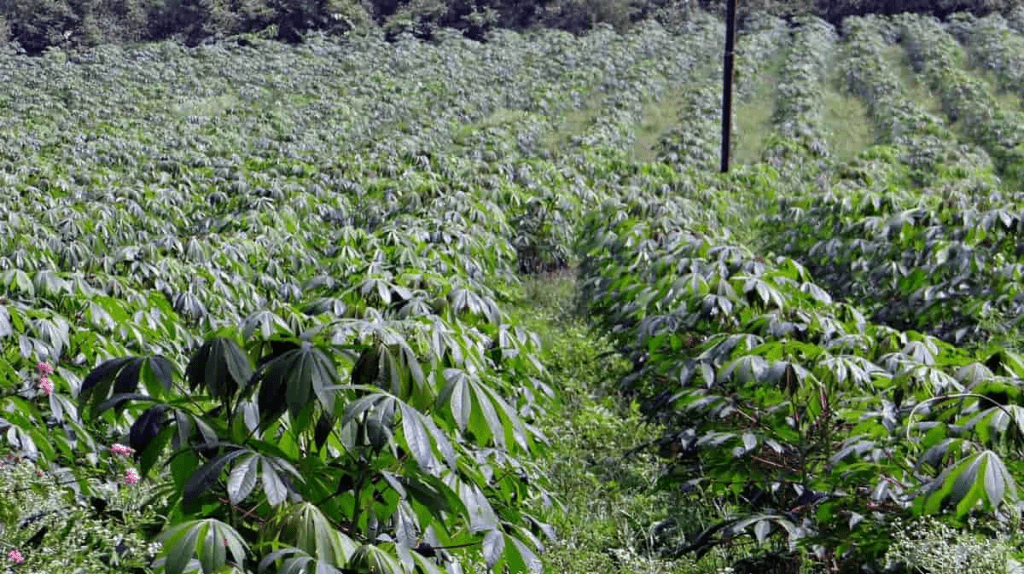
🌿 Crop Rotation: A systematic method of growing different types of crops on the same land across different seasons to improve soil health and reduce pest cycles.
🐞 Biological Pest Control: Using natural predators and eco-friendly repellents instead of chemical pesticides.
🌱 Composting: Using organic matter, like plant waste and animal manure, to enrich soil fertility naturally.
🌳 Agroforestry: Integrating trees and shrubs into crop and livestock systems to improve biodiversity and soil protection.
💧 Water Conservation Practices: Methods like mulching and drip irrigation help conserve water resources.
The goal is to build a self-sustaining ecosystem that fosters long-term soil fertility, promotes ecological balance, and reduces harmful environmental impacts.
In the Nigerian context, many traditional farming practices already align with organic principles. However, modern organic farming formalizes these practices through certifications, better scientific understanding, and global market integration.
Why Organic Farming Is Gaining Ground in Nigeria
Several factors are driving the increasing interest in organic farming across Nigeria. From health concerns to environmental awareness, Nigerian consumers and producers are becoming more conscious of how food is grown and its broader implications.
Rising Health Awareness
In urban areas like Lagos, Abuja, and Port Harcourt, there’s a noticeable shift toward healthier lifestyles. People are becoming more aware of the dangers of consuming chemically treated food and the health risks associated with pesticide residues, synthetic additives, and preservatives.

Research shows that long-term exposure to chemical pesticides can lead to serious health issues such as cancer, hormonal disruption, and reproductive challenges. With growing awareness, more Nigerian consumers are willing to pay a premium for organic food that is free from harmful chemicals.
Additionally, social media platforms have amplified conversations around clean eating and organic living, further encouraging the younger generation to choose healthier options.
Environmental Sustainability
Nigeria faces serious environmental challenges, including deforestation, soil degradation, water pollution, and loss of biodiversity. Conventional farming practices especially the overuse of chemical fertilizers and pesticides have contributed significantly to these issues.
Organic farming offers solutions that work with nature rather than against it. By focusing on soil health, water conservation, and biodiversity, organic farming helps regenerate natural resources while reducing harmful environmental impacts.
This shift is particularly important in Nigeria, where climate change effects such as desertification in the north and flooding in coastal regions are increasingly threatening food security.
Economic Potential and Market Demand
The global demand for organic products has been on a steady rise. According to the Research Institute of Organic Agriculture (FiBL), the organic food market is worth over $100 billion globally and continues to grow.
For Nigerian farmers, this presents a lucrative opportunity, especially for export. Countries in Europe and North America have a strong appetite for certified organic products, and Nigerian producers are beginning to tap into this market.
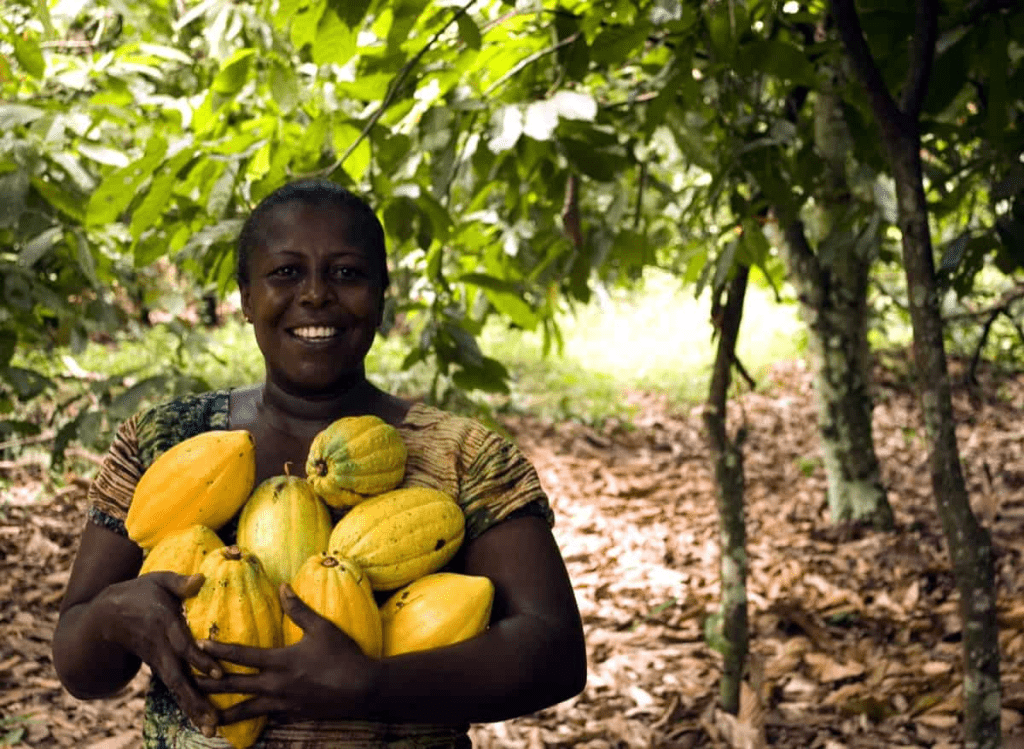
Locally, the organic sector is slowly expanding with more farmers’ markets, health food stores, and organic produce sections in supermarkets emerging across major cities. As awareness grows, so does the willingness of Nigerian consumers to pay for high-quality, chemical-free food.
Support from Government and NGOs
Although the Nigerian government has been slow to adopt comprehensive organic farming policies, several initiatives have started to emerge. Various NGOs and international organizations have begun supporting smallholder farmers through training programs, workshops, and awareness campaigns.
For instance, programs supported by the Food and Agriculture Organization (FAO) and the International Federation of Organic Agriculture Movements (IFOAM) have helped educate farmers on the benefits of sustainable agricultural practices, particularly for export-focused markets.
Challenges Facing Organic Farming in Nigeria
Despite its promising potential, organic farming in Nigeria faces significant barriers that hinder its growth and scalability.
Lack of Awareness and Education
A major challenge is the general lack of awareness among farmers and consumers. Many smallholder farmers are unaware of the long-term benefits of organic farming or the environmental harm caused by conventional agricultural chemicals.
Additionally, many consumers do not fully understand what organic food entails, leading to misconceptions about its benefits. Without proper education and advocacy, these misunderstandings limit demand and discourage farmers from transitioning to organic practices.

High Cost and Complexity of Certification
One of the biggest obstacles for Nigerian organic farmers is certification. Achieving organic certification is expensive, time-consuming, and involves strict regulations that many smallholder farmers find difficult to meet.
Certification bodies such as Ecocert and Organic Farmers Association of Nigeria (OFAN) require rigorous documentation, inspections, and adherence to international standards often out of reach for small-scale farmers with limited resources.
Without certification, farmers struggle to gain access to international markets, where organic certification is often a prerequisite.
Limited Access to Organic Inputs and Resources
Access to organic fertilizers, pest control methods, and other eco-friendly resources remains a significant challenge. Most rural farmers still depend on conventional farming inputs because they are cheaper and more accessible.
Furthermore, there is limited availability of specialized training on organic methods. Without technical support and knowledge transfer, many farmers lack the necessary skills to transition from conventional to organic systems effectively.
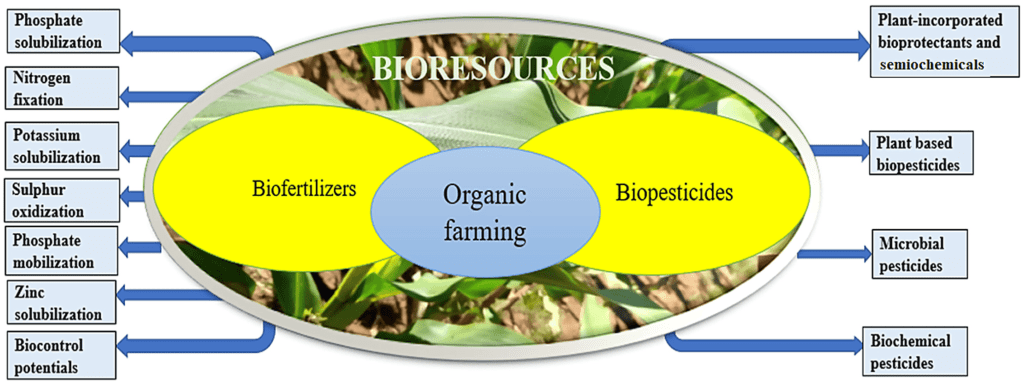
Market Structure and Distribution Challenges
The organic market in Nigeria is still fragmented, with limited formal structures for farmers to sell certified organic produce at competitive prices. Most sales happen in informal markets, and there’s no centralized system to connect organic producers with consumers.
Additionally, the cost of organic food remains higher than conventionally grown produce due to the intensive labor and strict requirements involved in organic farming. This price gap discourages many consumers, particularly in low-income communities.
The Future of Organic Farming: Trend or Fad?
So, is organic farming in Nigeria a passing trend or a long-term shift? The answer depends on several factors:
Policy Support and Government Intervention
For organic farming to thrive, stronger government policies must be put in place. This includes providing subsidies for organic inputs, establishing certification bodies within Nigeria, and offering tax incentives for farmers who adopt sustainable practices. Government-backed programs could help expand awareness and encourage more farmers to transition to organic agriculture.
Technological Innovation and Research
Investment in agricultural research is critical. Developing cost-effective organic fertilizers, eco-friendly pest control, and sustainable irrigation technologies can make organic farming more accessible and profitable.
Technological innovations like mobile apps for organic market linkages and real-time soil health monitoring could also help drive adoption, particularly among younger farmers.

Investment in Education and Farmer Training
Educating farmers is essential for long-term change. By providing training on organic farming techniques, crop management, and certification processes, smallholder farmers can gradually transition from conventional to organic farming systems. Organizations like HTSF Global can play a vital role in offering training programs that empower farmers with practical knowledge and skills.
Expanding Market Opportunities
To ensure organic farming is more than a trend, there must be a focus on developing local markets. This could include partnerships with supermarkets, restaurants, and food companies to create stable demand for organic products within Nigeria.
Creating formal platforms where certified organic farmers can sell their produce at fair prices will help encourage more farmers to embrace sustainable practices.
How HTSF Global Supports Sustainable Farming
At HTSF Global, alongside our agricultural e-commerce division, HTSFarms, we are committed to transforming the agricultural sector through innovation, inclusivity, and sustainability. Our goal is to empower farmers by providing access to essential resources, technology, and robust support that enhance productivity and profitability. that drive productivity and profitability.
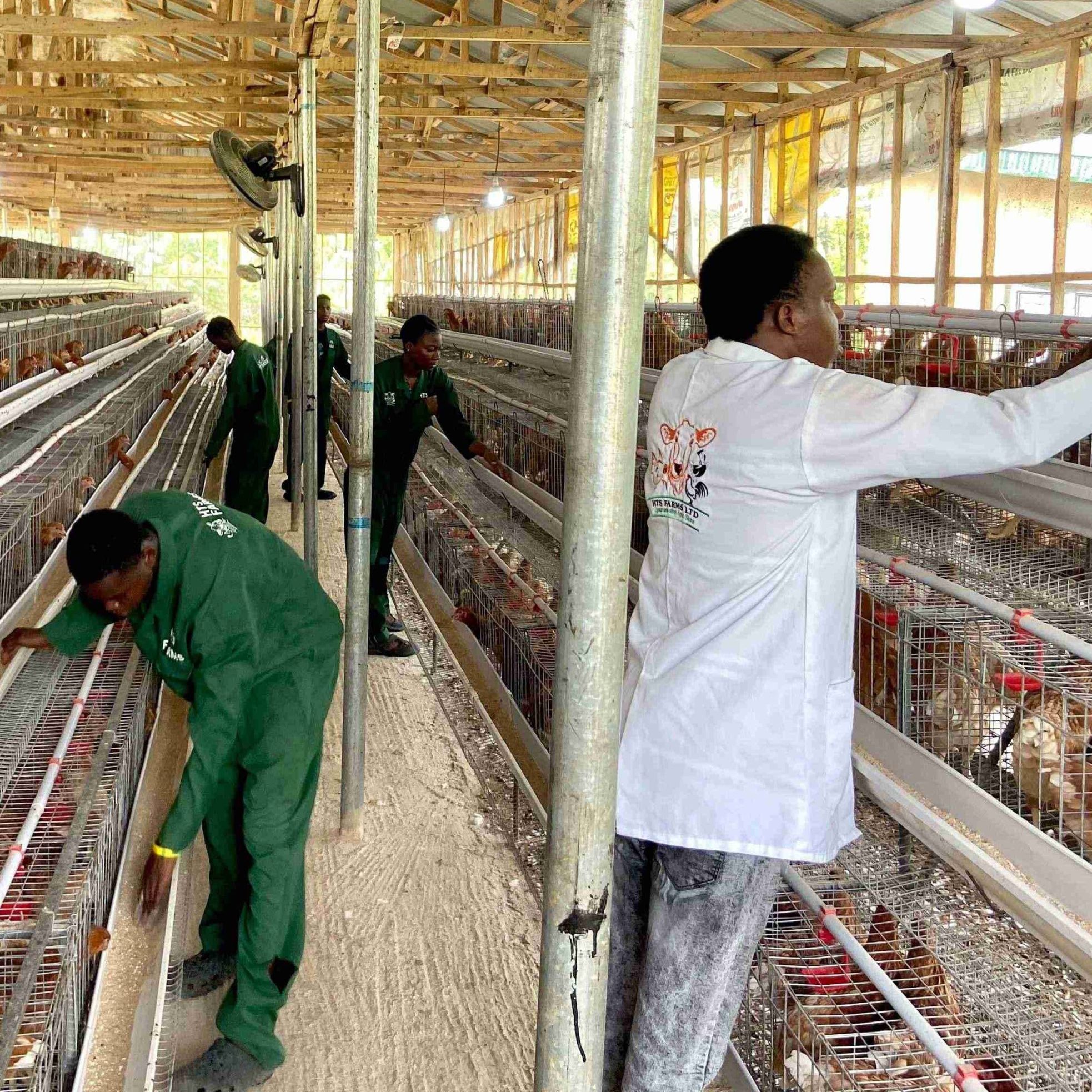
Through HTSFarms, we make available high-quality farm inputs and offer comprehensive training programs designed to equip farmers with the knowledge and tools they need for success. We also champion climate-smart agriculture, promote gender inclusion, and encourage sustainable practices such as crop rotation and agroforestry to support environmentally responsible farming.
At HTSF Global, we are dedicated to creating a thriving, inclusive, and sustainable agricultural ecosystem where farmers are empowered to innovate and succeed.
Conclusion
Organic farming in Nigeria is more than just a passing trend, it is a necessary response to environmental degradation, health concerns, and global demand for sustainable agricultural products. While there are significant challenges to overcome, the potential benefits for farmers, consumers, and the environment are too significant to ignore.
With the right policy support, investment in research and education, and a growing market, organic farming could become a major force in Nigeria’s agricultural future helping to create a healthier, more sustainable food system for all.
References
Food and Agriculture Organization (FAO) – Climate-Smart Agriculture Initiatives in Africa
International Federation of Organic Agriculture Movements (IFOAM) – Organic Agriculture Standards
Organic Farmers Association of Nigeria (OFAN) – Certification Guidelines
Research Institute of Organic Agriculture (FiBL) – Organic Farming Global Statistics Report
HTSF Global Sustainability Reports
